Chanukah 8 Inspiring People 5782
This year we light the candles for this year’s Chanukah celebration in honor of these incredibly inspiring people. Their light and lives helped influence and change the world. Who will you honor as you light the candles this Chanukah? What people in your life bring light to your world?
Ruth Bader Ginsberg
Sunday, November 29, 2021 (Jessy Lichter Maret)
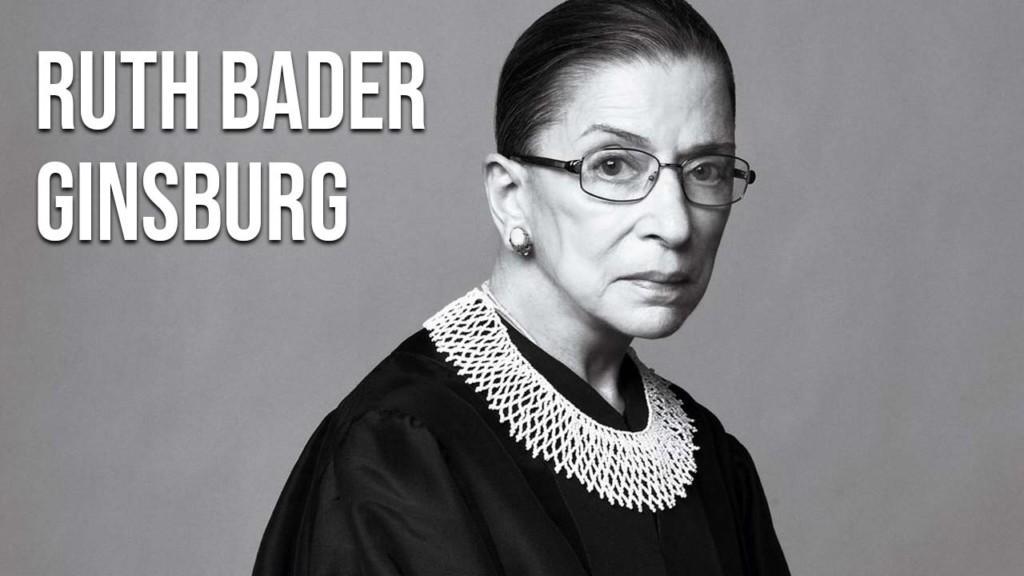
Ruth Bader Ginsburg, better known to many as RBG, is a hero and pioneer, standing as both a fierce feminist icon changing the path of women’s rights forever as well as for her illustrious career as a lawyer and supreme court justice. Once RBG determined (for herself of course!), that (she) “could do a lawyer’s job better than any other,” she promptly paved a path and graduated from both Harvard and Columbia.
As her practice began in the US Court System, it was clear that she was right; her ability to argue to the law was better than most others; the cases that Ginsburg tried and won were not only remarkable because of her skills throughout her arguments, but also because of her fearless leadership of guiding the courts to abandon legislation in relation to gender-based stereotyping. By guiding the courts to find resolve in having her male clients achieve equal rights, RBG ultimately forced the rights of women to the front line of thinking. RBG stands out as someone who shines a light on women, equality, and human rights.
Here are just a few of the reasons why I admire her:
1) She practiced law without pay
2) She achieved equal pay for women at Rutgers University
3) She co-founded multiple women’s rights projects
4) She refused to attend Red Mass and stood for abortion rights
5) RBG’s definition of Feminism- she fought for all genders
Rabbi Osnat Barzani
Monday, November 30, 2021 (Rabbi Michelle Missaghieh)

Rabbi Barzani (1590–1670), was the first woman rabbi. A renowned Kurdish Jewish woman who lived in Mosul, Iraq her father was the scholar Rabbi Samuel Barzani. He founded several yeshivot (Torah academies) for men and boys. Osnat was Rabbi Barzani’s only child. He taught her Hebrew, Torah, Talmud, Midrash, and Kabbalah (Jewish mysticism). Growing up on the laps of scholars she married one of her father’s best students, Rabbi Jacob Mizrahi, who promised that she wouldn’t do any domestic work and could spend her time as a Torah scholar. After her father’s and husband’s death, she took over the Mosul yeshivah and taught the students, providing them with rabbinic training. Many rabbis of the time called her Tanna’it – a title given to a Talmud scholar, a rare honor for a woman. Her father and husband were not successful fundraisers, leaving her in a state of poverty, however, Rabbi Osnat wrote several letters requesting funds. Despite her financial problems, she successfully ran the yeshivah which produced serious scholars, including her son, whom she sent to Baghdad, where he continued the dynasty of rabbinic scholars. After her death, many Jews made pilgrimages to her grave in Amadiyah (Northern Iraq), where her father is also buried, and where a synagogue she helped save from fire was named in her honor.
On this second night of Chanukah, I am inspired by the light of Rabbi Osnat Barzani’s resilience and courage. I highly recommend the children’s picture book Osnat and Her Dove: The True Story of the World’s First Female Rabbi by Sigal Samuel and Vali Mintzi.
Bessie Moses
Tuesday, November 30, 2021 (Dr. Hannah Bennett)

One would think that the accomplishments of a gynecologist who was born in 1893 would be irrelevant in 2021, but with the state of women’s health in our world today, we could all use some Bessie Moses mojo in our lives. Moses, a protégé of Margaret Sanger, found her purpose in the world of women’s contraceptives. She navigated the social stigma and legal quagmire surrounding female contraceptives in the early twentieth century and helped shape an organization that eventually became Planned Parenthood.
During her tenure, Moses fought to ensure that contraceptive instruction was included in medical schools and fought the Comstock Law to ensure that contraceptive materials could be disseminated via mail. Moses’ ultimate legacy is our access to contraception today.
In the face of legislation like S.B. 8, if Bessie Moses were alive today, she would most certainly be shocked to know that issues like access to abortion are still being legislated and litigated today.
Julius Lester
Wednesday, December 1, 2021 (Rabbi Calvin Dox-DaCosta)

Julius Lester was born in St. Louis in 1939 and was the son of a Methodist minister, although he learned early on his life that his mother’s grandfather was a Jewish immigrant from Germany. Lester graduated college with a degree in English and moved to Mississippi in 1964 where he began working with the Student Nonviolent Coordinating Committee (or SNCC) as head of its photography department. Through his lens or on the written page, Julius Lester was committed to portraying the history of black Americans—past and present.
In his first book about race, “Look Out, Whitey!,” Lester wrote: “The world of the black American is different from that of the white American. The difference comes not only from the segregation imposed on the black man, but from the very nature of blackness and its evolution under segregation.”
In 1981, Lester said, he had a vision: “I was a Jew…there was a yarmulke on my head, and I was dancing, and I was filled with incredible joy.” Lester converted the next year. In an interview with the Los Angeles Times in 1992, Lester spoke of knowing both “the pain of a Jew when confronted with black anti-Semitism and the pain of a black person when confronted with Jewish racism.” Julius Lester was a man of many passions who never shied away from bringing attention to issues of race and religion.
As we light our candles for this fourth night of Chanukah, let us draw inspiration from Julius Lester, author of children’s and adult books, educator, photographer, musician, civil rights activist, Jew.
Friedl Dicker-Brandeis
Thursday, December 2, 2021 (Cantorial Soloist Shelly Fox)
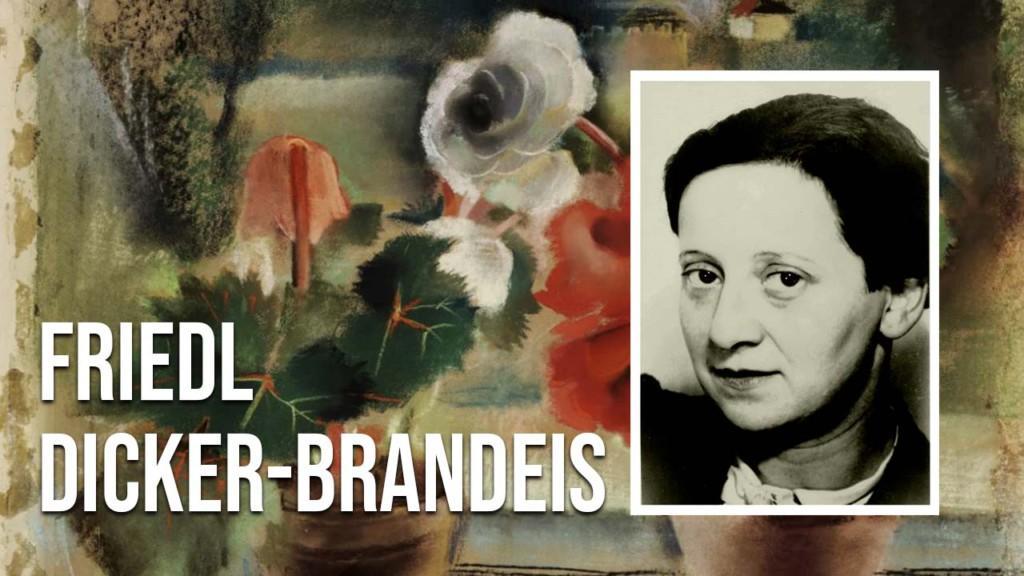
Friedl Dicker-Brandeis was a light to many children at a time of deep darkness. Although she had a flourishing artistic career during a powerfully creative time in Germany, Dicker-Brandeis was deported to Terezin Concentration Camp in 1942 because she was Jewish a Communist.
Having lost her mother at a young age and having no children herself, Dicker-Brandeis became a mother figure to hundreds of children at Terezin by sustaining them through art classes. After her death in Auschwitz, over 5000 pieces of children’s art and her own art which she had hidden were discovered at Terezin. Survivors praise her memory and how she helped them.
One former student wrote, “Friedl’s teaching, the times spent drawing with her, are among the fondest memories of my life. Terezin made it more poignant but it would have been the same anywhere in the world… Friedl was the only one who taught without ever asking for anything in return. She just gave of herself.”
Bella Abzug
Friday, December 3, 2021 (Rabbi Mari Chernow)
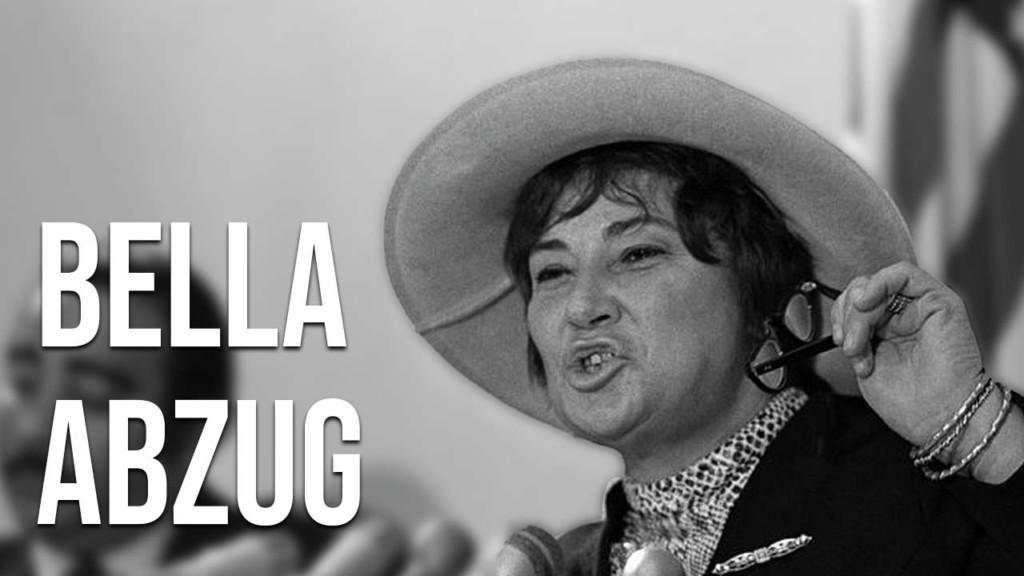
This woman’s place is in the House…the House of Representatives.” This concept, familiar now, was bold and provocative in 1970. That’s why Bella Abzug chose it as her campaign slogan when she ran for U.S. Congress. Abzug was known as a fierce trailblazer who bucked conventions from a young age. She was 13 when her father died. Although she had been told that, as a female, she could not say Kaddish for him, she attended synagogue every morning before school to do precisely that.
Her groundbreaking legal career included work in labor rights, tenants’ rights, and civil liberties cases. She defended Willie McGee, a Black man who was convicted and sentenced to death in Mississippi for raping a white woman. She was a leading voice in challenging the Vietnam War and the House Un-American Activities Committee. In Congress, she was an early supporter of gay rights and anti-discrimination laws. She was a leading proponent of the “sunshine laws” that forced the government to make national security and other policies transparent. She coauthored the Comprehensive Child Development Act with Brooklyn Congresswoman Shirley Chisolm. The act passed both houses of Congress but was vetoed by President Nixon.
In words that ring true fifty years later, she said, “Without adequate, low-cost daycare facilities, women are doomed to occupy low-paying, low-prestige jobs; without daycare, women must remain economic serfs.”
Bella Abzug was a courageous and outspoken leader of great moral courage. The light she brought into this world continues to shine bright.
Sandy Koufax
Saturday, December 4, 2021 (Sarah Escobar)
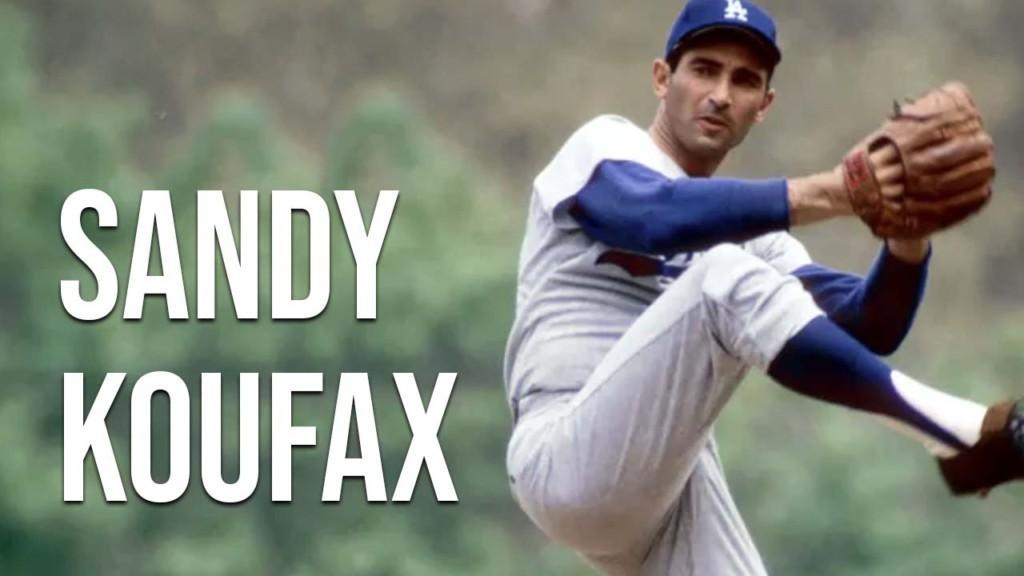
Sandy Koufax Chose His Jewish Faith Over Baseball Sandy Koufax, “The Left Arm of God,” as he was known, played 12 years in the National League, most of them with the Dodgers. Koufax, so talented and dedicated to his skill, was the youngest player to be elected to the Baseball Hall of Fame. Koufax is remembered not only for his love of baseball but he is also remembered for what he loved even more than the game, his Jewish faith. In 1965, the Dodgers were warming up for the first game of that year’s world series when Koufax announced his decision to not play in the game as it coincided with Yom Kippur. His Dodger fans and teammates were disappointed that they would have to play game one of the World Series without their ace-pitcher.
Deeply entrenched in his Jewish faith, Koufax had to decide between his religion and his day job. He chose religion. During the celebration of Chanukah, the Festival of Lights, we are often called to reflect on people who have brought light into this world. As a parent of Jewish athletes, I think about Sandy Koufax. I’m in awe of his talent, his hard work and his dedication to one of the hardest games ever played in America. I’m equally in awe of the decision he made not to play on Yom Kippur. His decision to publicly put his faith first certainly wasn’t an easy or popular decision.
At this moment Koufax impacted American Jewish history by leading by example. He made it known at this moment that he was not just an athlete; he was a Jewish athlete, and his religious calling was good and notable to who he was in this world. May Sandy Koufax’s memory always shine a light on how we move through this world as Jews and how we can choose to put our calling to our faith first regardless of what’s at stake.
Larry Kramer
Saturday, December 5, 2021 (Zach Lasker)
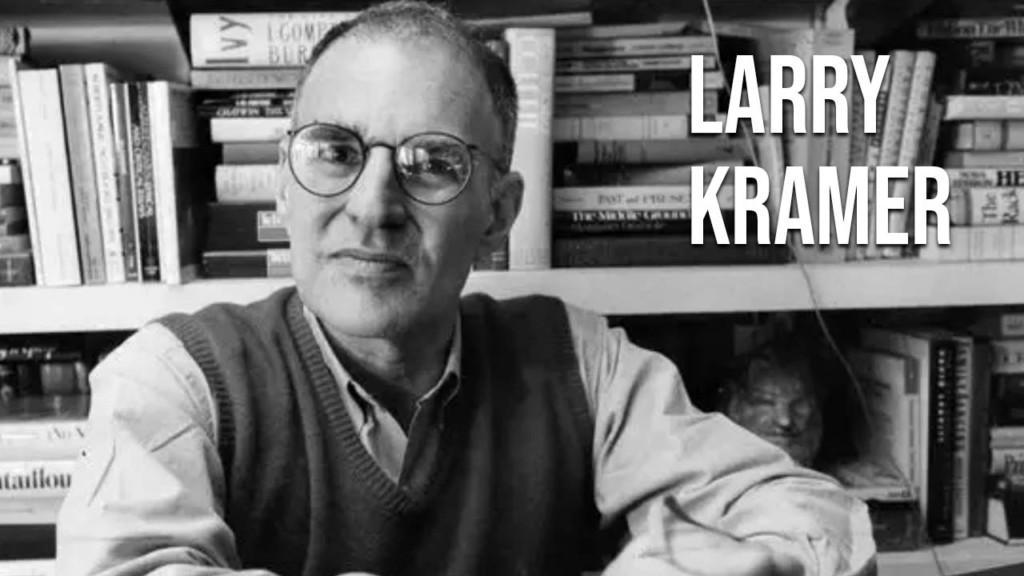
“There will always be enemies. Time to stop being your own.” -Larry Kramer
When I was a kid, I perceived the miracle of Chanukah to be a magic vat of oil that was so potent it ignited the Menorah candles for a whopping eight nights. As a teenager, my appreciation of Chanukah expanded to the miracle of inner strength so powerful that it knocks down the forces of adversity, intolerance, and fear that hold us back from sharing the delicious characteristics and attributes we each embody and make us unique. Tonight, we light our candles in tribute to Larry Kramer who modeled the values of identity and inclusion through his writing, film production, and activism around issues of public health and LGBTQ rights.
Larry’s art has and will continue to impact the hearts and minds of countless individuals and has been recognized through several awards. Shortly after his death in June 2020 Larry was added among American “pioneers, trailblazers, and heroes” on the National LGBTQ Wall of Honor within the Stonewall National Monument (SNM) in New York City’s famous Stonewall Inn. So, I ask: What light within are you concealing and how can you reveal it?
